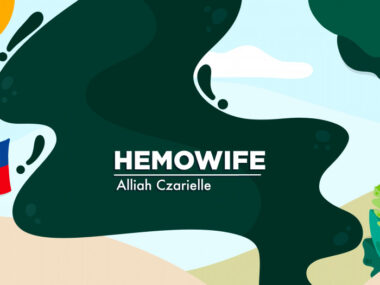Why I still write about hemophilia, even though my sons are adults
A new phase of life prompts reflection and a shift in focus
Written by |

My sons, Julian and Caeleb, are adults living with hemophilia. Julian is 28 years old, and Caeleb is 18.
Having adult children is a new phase of life for me. While Julian is out on his own chasing the next audition, Caeleb is preparing to begin his college career. It’s an exciting time as I watch them both find their way in the world. I’m their biggest cheerleader. This new chapter, however, also makes me reflect.
What’s left to be said?
Shifting my focus
Over the years, I’ve used writing to process the ups and downs of raising sons with a bleeding disorder. I began a blog in 2006 out of loneliness. I didn’t expect anyone to read my thoughts; there was just something freeing about putting my feelings and struggles out into the world. I processed each bleed, inhibitor diagnosis, hospitalization, and surgery by putting my thoughts on the screen. This practice helped me navigate hemophilia and inhibitors.
Writing became my lifeline, a way to make sense of the chaos and find a semblance of control in situations that often felt overwhelming. Through my writing, I not only found solace, but I also connected with a community of parents and individuals living with bleeding disorders who understood the rare challenges we faced. Their support and shared experiences provided comfort and validation, making me feel less alone on this journey. These people became part of my family.
As I watch my sons step into their own lives, I find myself revisiting those old blog entries and columns. Each post is a testament to our resilience, a chronicle of our journey together. Julian’s relatively smooth path and Caeleb’s more challenging road have shaped them into the strong, independent young men they are today. Their different struggles have also shaped me, even though I never imagined a life filled with needles, ports, and factor.
At this new juncture, I question whether I have more to say about my journey in the world of bleeding disorders. My sons aren’t having regular bleeds or complications, for which I’m grateful. But what I’ve realized is that there will always be a newly diagnosed family that needs support. Parents on journeys eerily similar to my own may need a listening ear or a shoulder to cry on.
As I continue to write, my focus shifts. It’s no longer just about processing the difficulties of hemophilia, but also about celebrating the milestones and victories. It’s about embracing this new phase of motherhood, where my sons’ independence is a source of joy and fulfillment. Their achievements, big and small, fill me with a sense of pride and optimism for the future.
In this time of reflection, I realize that my role is evolving. I’m no longer the constant caregiver but rather a steadfast supporter, cheering my sons on as they pursue their dreams. Julian’s passion for acting and Caeleb’s anticipation of college life are a source of great excitement.
This journey has taught me the power of resilience, the importance of community, and the beauty of unconditional love. I’ll always be my sons’ biggest cheerleader, ready to support them through every high and low. And through it all, I’ll keep writing.
Writing has been my tool for capturing the moments that define our extraordinary journey together, and I’ll continue to use it to reflect, share, and connect.
Note: Hemophilia News Today is strictly a news and information website about the disease. It does not provide medical advice, diagnosis, or treatment. This content is not intended to be a substitute for professional medical advice, diagnosis, or treatment. Always seek the advice of your physician or another qualified health provider with any questions you may have regarding a medical condition. Never disregard professional medical advice or delay in seeking it because of something you have read on this website. The opinions expressed in this column are not those of Hemophilia News Today or its parent company, Bionews, and are intended to spark discussion about issues pertaining to hemophilia.




Leave a comment
Fill in the required fields to post. Your email address will not be published.